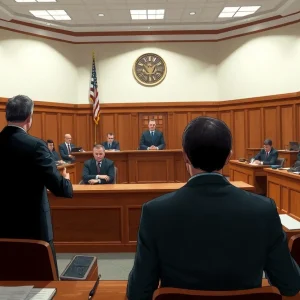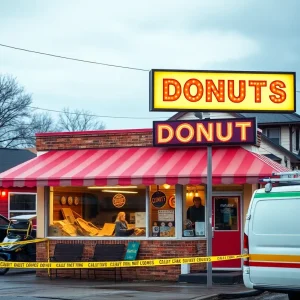St. Petersburg’s Freedom School: A Bold Response to Censorship
Last month in St. Petersburg, the air was buzzing with excitement as a group of students engaged in a unique and empowering lesson that showcased the importance of Black history—a topic that’s taking a serious hit in Florida’s public education system. These kids, predominantly Black, filled a classroom that’s part of a newly launched initiative aimed at reversing the trend of censorship surrounding African American history.
A Wake-Up Call for Educators
When the class kicked off, students were ready to learn. “When I say, ‘because’, you say: ‘Black people invented it!’” shouted Rene Scott Best, their enthusiastic instructor. The classroom erupted with a rousing call-and-response as they read through a futuristic story where critical inventions were nonexistent—like the toilet, air conditioner, and tricycle—all innovations created by Black inventors. The energy was infectious as Best reminded them, “Because we were brought here as slaves, they try to make us think we’re not very smart. But without the Black inventions, you’d all be in a cabin!”
This classroom isn’t just any room—it’s part of a freedom school recently launched by the Association for the Study of African American Life and History (ASALH). Established in response to the controversial Stop Woke Act introduced by Florida Governor Ron DeSantis, the initiative serves as a sanctuary for truthful education on Black history. The governor’s policies have triggered heated debates about the content of educational materials, making this freedom school a critical response to censorship.
The Battle Over Black History in Florida
With only a handful of Florida school districts advocating for Black history in their curriculum, many educators are feeling a weight of uncertainty. “We have great standards in Florida, but there’s this fear factor,” said Edna Sherrell, one of the lead instructors. Teachers find themselves wondering whether they’ll face backlash for speaking the truth about history. Sherrell’s thoughts resonate with a community that fears not being able to teach the full story of African Americans.
The school held its summer session at the Woodson African American Museum of Florida, where kids aged 11 to 17 willingly signed up for classes, eager to learn what’s often omitted from their mainstream education. With a mission to draw from the Black activist-intellectual tradition, the freedom school emphasizes the beauty and significance of Black history across various perspectives, imparting knowledge that empowers young minds.
An Expanding Movement
The gist of what’s happening in Florida isn’t just local; it’s a part of a larger resurgence of freedom schools that have been popping up nationwide, all sparked by political tension. These schools provide a critical resource for teaching an accurate portrayal of Black history, covering subjects from the origins of Africa to the struggles during the Jim Crow era.
In fact, freedom schools are gaining momentum in cities like Dallas, Indianapolis, and beyond. Each program offers its unique curriculum, with a heavy reliance on multimedia resources like the Black History 365 textbook, alongside primary sources that bring history to life.
The Impact on Students
The students aren’t just passive learners; they’re actively engaging in discussions that challenge their understanding of history. Sara King, a bright 16-year-old in the program, shared that her experience complements what she learns at home, thanks to her dad’s teachings. “There’s so much that just isn’t included in textbooks,” she lamented, highlighting how discussions around slavery often sidestep the brutal reality.
This sentiment was echoed by her father, Akil King, who also finds value in the teachings and often discovers new aspects of history that he didn’t know before. “No matter how much African American history I know, there is so much that has been withheld from us,” he noted, reinforcing the idea that educational avenues like these are crucial for uncovering buried histories.
Looking Ahead
As the landscape of education evolves in this era of extreme political scrutiny, many see these freedom schools not just as a temporary solution but as a necessary framework for the future. “Governors come and go, but the fight for our history won’t end,” Akil King posited, conveying that this moment could serve as a catalyst for ensuring African American history is always part of the educational curriculum.
The freedom school movement is by no means an isolated effort. Creating opportunities to learn about Black history is fundamental, particularly as conservative policies aim to restrict access to comprehensive education. This is where the resilience of a community shines through, reminding everyone of the value and majesty of celebrating Black history.







